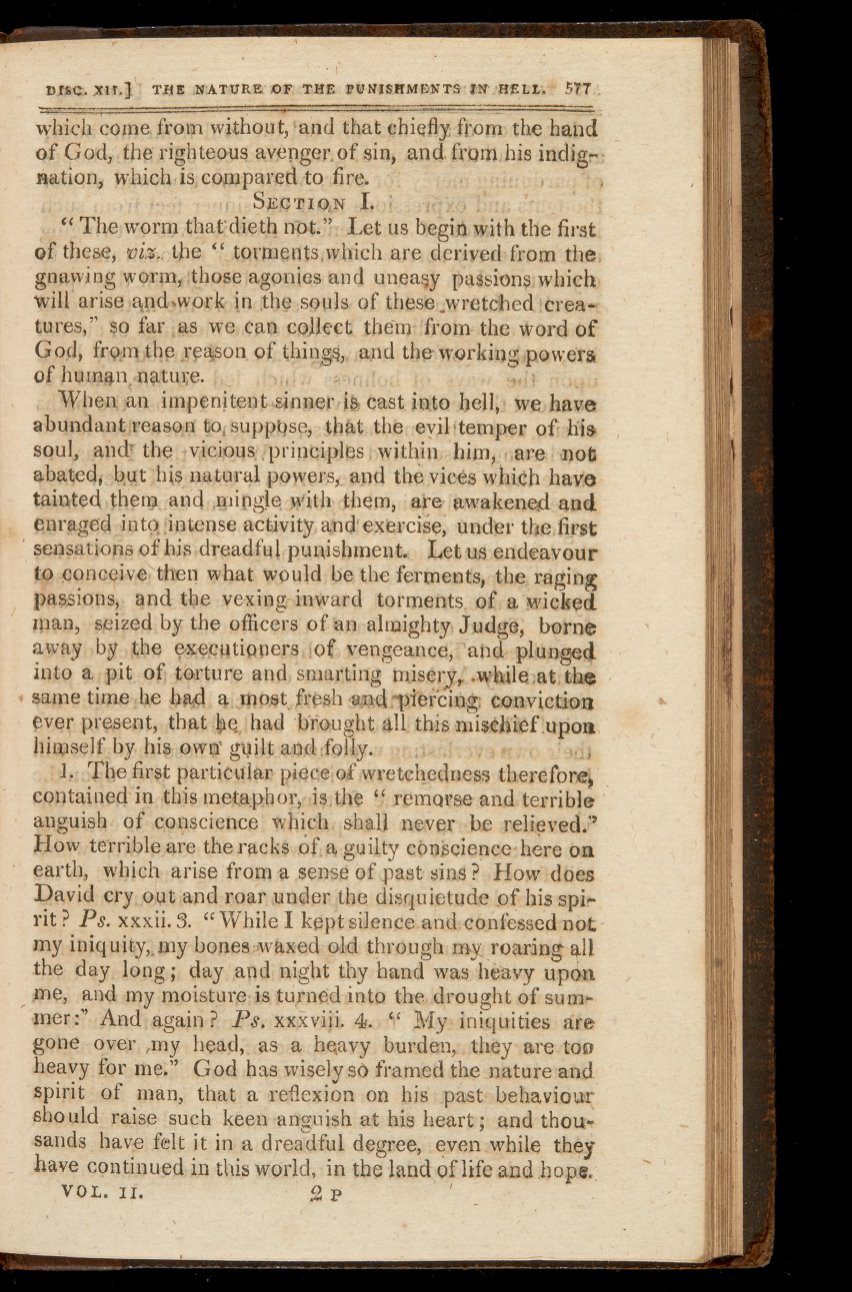

UMC.
X13.
THE NATURE OF THE PUNISHMENTS IN HELL.
577
which come
from without,
-and
that
chiefly
from
the
hand
of
God, the righteous
avenger.
of
sin,
and.
from
his
indig-
nation,
which
is,
compared
to
fire.
SEC TIO,N
I.
"
The
worm
thatdieth
not."
Let
us
begin with the first
of
these,
viz..
the
"
torments
which
are
derived
from
the
gnawing
worm,
those agonies
and
uneasy passions which
will
arise
and
work in
the
souls
of
these
_wretched
crea-
tures,"
so
far as
we
can
collect
them from the word
of
God,
from the
reason
of
things,
and
the
working powers
of human nature.
When
an
impenitent sinner
is
cast into
hell,
we
have
abundant
reason
to;
suppose,
that
the
evil
temper
of
his
soul,
and
the
vicious
principles within
him,
are
not
abated;
but
his
natural
powers,
and the vices
which
have
tainted
them and
.mingle
with them,
are
awakened
and
enraged into intense
activity and exercise,
under
the first
sensations
of
his
dreadful punishment.
Let
us
endeavour
to conceive then what
would
be
the ferments,
the raging
passions,
and the
vexing
inward torments
of
a
wicked
roan, seized
by
the
officers
of
an almighty
Judge, borne
away
by
the
executioners
of
vengeance,
and plunged
into a pit
of
torture
and smarting misery,
,while
at the
same time he
had
a
most
fresh
and
-piercing:
conviction
ever present,
that
he had
brought
all this
mischief.upon
himself
by
his
own guilt and
folly.
1.
The
first
particular piece
of wretchedness therefore,
contained
in this
metaphor,
is
the
"
remorse and
terrible
anguish
of
conscience
which shall
never
be
relieved.'
How terrible
are the
racks
of
a guilty conscience here
on
earth,
which
arise
from
a
sense
of past
sins
?
How does
David
cry
out
and
roar under
the
disquietude
of
his
spi-
rit
?
Ps.
xxxii.
3.
"
While
I kept
silence
and
confessed
not
my
iniquity,. my bones
-waxed
old
through
rn,
roaring
all
the day
long;
day and night
thy
hand
was
heavy
upon
me, and
my
moisture
is
turned
into the
drought of
sum-
mer:" And again
?
Ps.
xxxviii. 4.
"
My iniquities
are
gone over
,my
head,
as
a heavy burden, they
are
to
heavy for
me."
God
has wisely
so
framed the
nature
and
spirit
of
man,
that
a
reflexion
on his
past behaviour
should raise
such
keen anguish
at
his
heart;
and
thou-
sands have felt
it in
a
dreadful
degree, even
while
they
have
continued
in this
world, in the land
of
life
and
hope.
VOL.
II.?
P

















